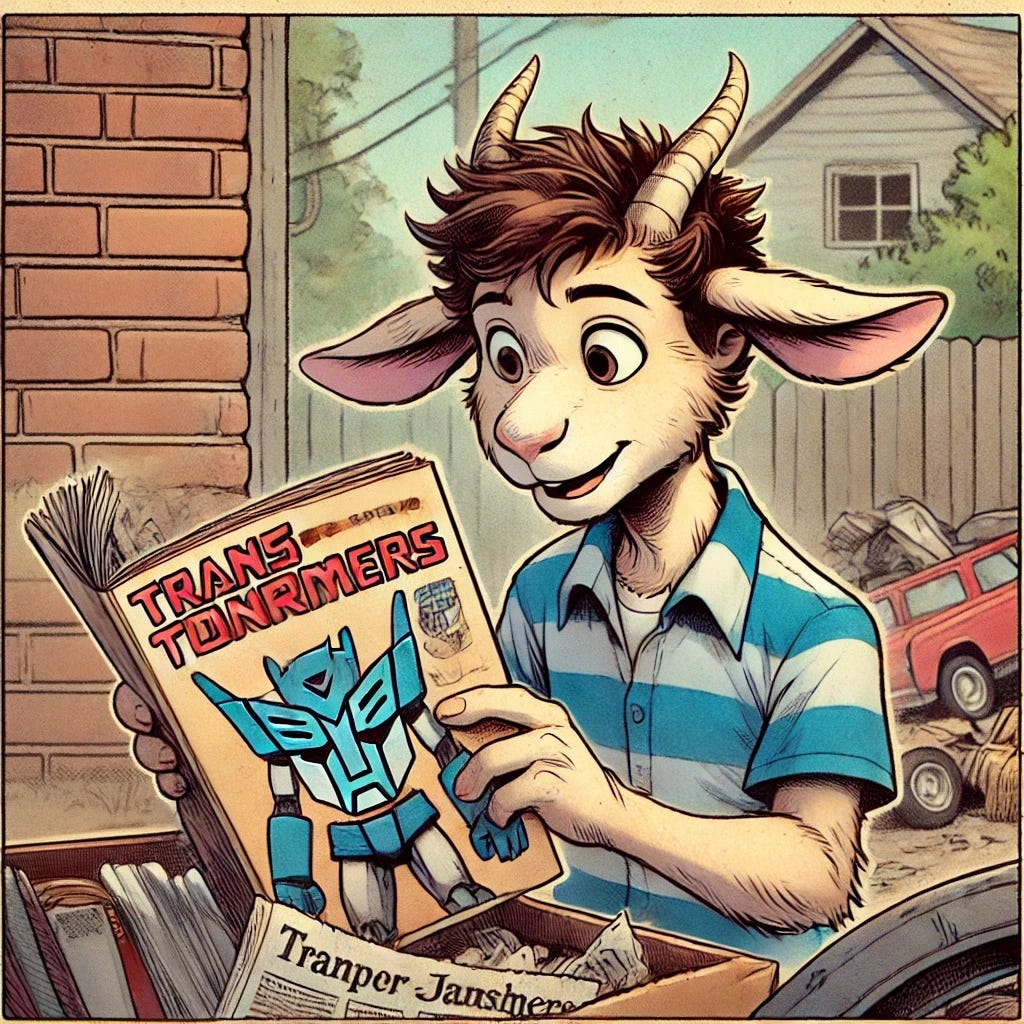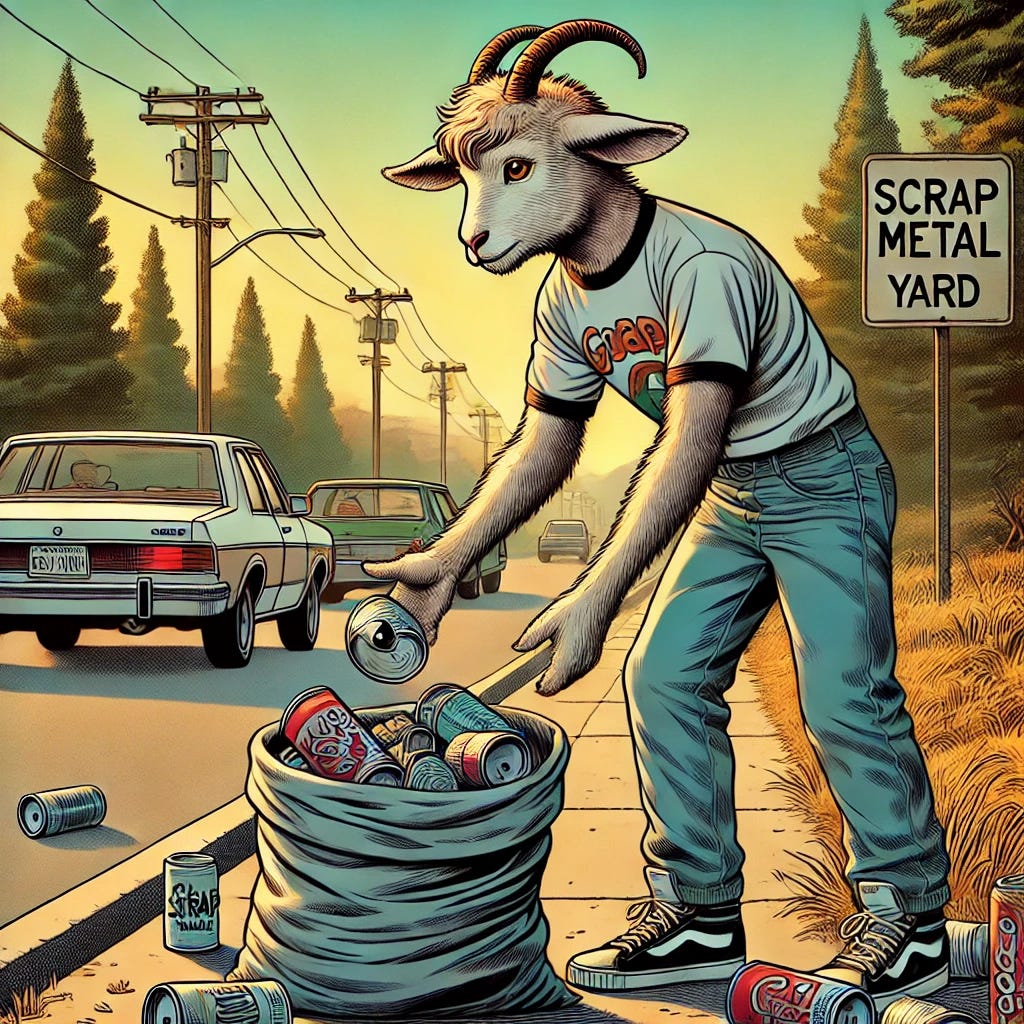The Value of Value
How do you value your time with your family? How about the value of your used comic book? What are your moral and ethical values?
The word value has become indispensable in English, and it’s not for only one meaning of the word.
Value traces its origins back to Latin, where it began as valere: to be strong or to have worth. Latin gradually became French, and by the time of the Norman Conquest in 1066, we now had two different words: valoir—a verb meaning to be worth something—and value, a noun that meant the price of something.
We still use an indirect offshoot of valoir today, but we pronounce it valor, and nowadays it’s a noun. Value, on the other hand, remains both a verb and a noun.
Let’s start with that used comic book. Valuing a physical object is an art that can take years to master, but there’s still a pretty easy way to do it. Here’s where I began my own quest to understand value, when I became interested in a Transformers comic book someone wanted to throw away.
Now, I didn’t know much about pricing collectibles or how to find out what something was worth, but I took one look at the cover price (75 cents), and I reasoned immediately that there was more value than zero remaining.
Transformers comic books weren’t the only things I wanted to own, but the price on the cover made it simple to do some value math. I knew that I could pick up 24 cans and sell one pound of aluminum to a scrap metal place near my family’s home, and that pound paid just about the cover price of one comic book, depending on the current price of scrap aluminum in the mid 80s.
I had realized that I could trade in my time for comic books. I wrote about what happened next in Lawns and Comics:
Once I was old enough to (relatively safely) start pushing my family’s little lawnmower around, I started cutting grass. This was much harder work, and I almost certainly undersold myself and didn’t value my time well enough. Even still, I was able to command much larger sums of $10 per lawn, a princely sum during the late 1980s.
How princely? Well, a comic book on the newsstand was 75 cents throughout the mid-80s, but in 1988 both Marvel and DC jumped up to $1.00 on most titles.
This was a notable jump! That $10 now bought me only 10 issues of a new comic book, whereas I could have bought 13 before (with a little bit of change left over for some Willy Wonka Gobstoppers).
Valuing your time can seem much more daunting than valuing a comic book, but it’s also kind of the same thing. What I mean is that I was trading in my time when I was scouring the side of the road for discarded beer cans, and I was trading my time for comic books when I was mowing lawns.
Cutting grass in exchange for 10 or 13 comic books wasn’t terribly practical, so I’d normally use the medium of money, which was a bit like frozen work. One way you can value your time is to consider what you get paid per hour or per year, and then to insist that any extra work be paid at or above that rate, but that’s a bit overly simplistic—there are activities you’d probably still do even if you were paid very little, but happened to enjoy the activity.
Valuing your time and possessions might not be easy, but it’s a walk in the park as compared to trying to pin down ethical and moral values.
Trading in your time for money (or for something else) involves plenty of contention and room for debate, but at least nearly everyone can agree that doing work provides positive value. It’s worth something, in other words, and the debate is over how much that labor is worth.
With ethical values, the situation is very different. A value considered positive in one household or culture can be viewed as completely negative in another.
Instead of a tug-of-war about price, we have no agreement as to whether something is good or bad. Instead of arguing about the value of a thing, we are arguing over our values themselves.




Man, I miss "Tranper Jansmers." Such a good newspaper. Too bad they had to shut it down.
Valo(u)r eventually would come to mean displays of courage, particularly from soldiers in battle. In World War I, three men from my hometown of Winnipeg- Fred Hall, Bob Shankland and Leo Clarke- were each awarded the Victoria Cross for such achievements. Consequently, the city changed the name of the street on which they all lived to Valour Road, which it remains today.